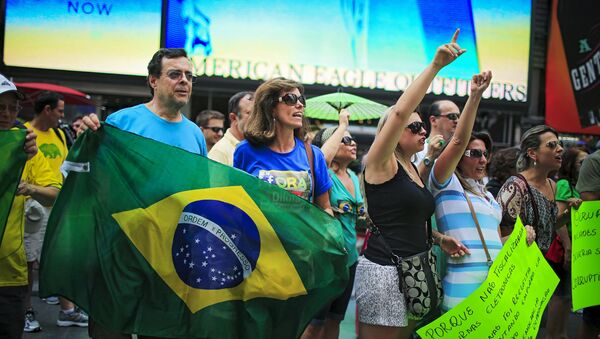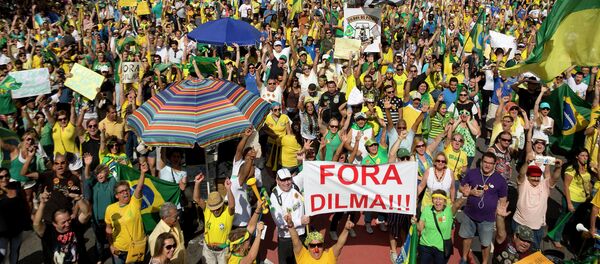Brazil has seen several mass protests in recent months, with hundreds of thousands of Brazilians taking to the streets across the country demanding President Dilma Rousseff's impeachment.
"Studies show that these street protests, this movement is made up of people who voted for the candidate Aecio Neves with high social status. This segment, people who get large salaries, is not the expression of the people's will, they do not express what we might call the Brazilian people," Paulo Pimenta said.
The politician underscored that part of the Brazilian elite that took to the streets "descend to such things as going against the democracy and promoting the ideas of the coup in a desperate attempt to return to power in the country."
"There is a segment of the opposition, which refuses to accept electoral defeat and is looking for any way to diminish this democratically produced mandate," the politician said.
Dilma Rousseff, 67, is facing a wave of discontent over a struggling economy and a major corruption scandal in the state-owned company Petrobras.
Rousseff headed Petrobras for seven years, between 2003 and 2010, during which most of the corruption had reportedly taken place.
In March, the first wave of protests against the government of Rousseff brought together at least 500,000 people becoming the largest political demonstration registered in Brazil since the 1984 protests.




